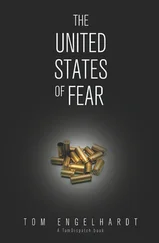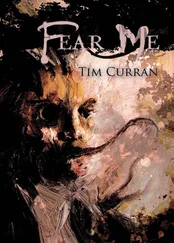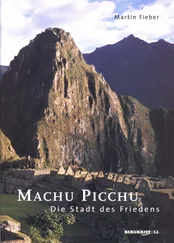Even our theater wore a mask. It announced itself to the street from behind grand Doric columns that rose two stories and supported a frieze with bas-reliefs of scenes from antiquity, and terra-cotta busts of Shakespeare and Marlowe, yet upon entry one attended animal shows, witnessed acrobatics and buffoonery of every type. And, finally and triumphantly, the performances of the Virginia Harmonists.
Mulligan and I selected the other members with an eye toward a balance of personalities that would provide variety and contrast. Powell was a simple fellow with a happy character; he had attended the university for one term and found himself unsuited for the academic life. I was perennially amused by his transformation into a tambourine-thumping whirligig onstage. Burke was our tragedian, master of monologues and tragic arias and hilarious anecdotes delivered with a doleful countenance. He set type for the Clipper in the small hours, after our show had finished for the night, and he was forever buttonholing me for advances on his weekly pay. I never learned how he spent the extra money. Eagan, our fiddler, was handsome, thin, aloof, and mean. Of the members, he was the one with whom I felt the least affinity. Mulligan had pressed to include him on the basis of his instrumental finesse, which was unarguable.
Each had answered one of the advertisements we had placed, or had heard by word of mouth. Mulligan and I conferred on their respective musical and personal assets and deficits, and we agreed upon our final choices, but I handled all the details of salary, hiring, and conducting rehearsals to shape ourselves into a show troupe. All except Powell were older than myself, yet none seemed to bristle at my leadership, except for Eagan, who had an unerring nose for the exception to almost any judgment I would make. But generally, and certainly during our first two years, the troupe was harmonious in all ways.
On a typical evening, we would arrive at the theater around six o’clock to start preparing for our seven-o’clock show. I would arrive first, light the dressing room lamps, make sure costumes were in order. One by one, the men would straggle in. As if we were all waking up slowly, there would be muttered greetings, a general air of preoccupation, perhaps a small detonation of jovial abuse now and again, as we began the evening’s transformation.
“Long night, Burke?”
“I fell asleep at the letter box and awoke with the letter ‘E’ embossed in multiple upon my cheek.”
“Kolb’s has added a bean pot at no charge starting at four in the afternoon.” This was a favorite tavern, just across from the theater.
“Something to soak up the brew.”
“Mulligan, is that a beard you’re raising or has your jaw grown mold?”
Tuning his banjo, Mulligan impassively replied, “The greasepaint will cover it.”
Eagan always entered looking the most dapper of us all and set purposefully to prepare himself for the evening, perhaps asking something on the order of, “Douglass, are we keeping ‘Boatman’ at the top of the second half? Have you determined?”
Slowly our street clothes were supplanted by our costumes. We had made the transition from the harlequinade of the earlier performers to full evening dress, but each with some exaggerated comic element — an outsized collar, mismatched cummerbund trailing behind, trousers cut three inches short to reveal red stockings. As we donned the stage garb we slowly joined our stage selves, discussing some bit of stage business that needed tightening or slight variation, mentioning the previous night’s performance, sharing this or that story.
But the application of the burnt cork effected the true transformation, as if a lid were being lifted from a sarcophagus and some slumbering spirit were raised from the underworld. Each of us seemed to contain some other being who was allowed to emerge only once the face had been blackened. We would regard one another as if encountering our true souls, kept under wraps during daylight hours.
“ Good evening, Brudder Neckbones ,” Mr. Powell would say, applying finishing touches in the glass.
“ My finest elucimidations to you on this fine ebening, Brudder Pork Chops ,” I would reply. “ And Brother Scamp ,” I might say to Eagan, “ has you made de acquaintance of Bullfrog Johnson ?” At this, Mulligan, fully Bullfrogged, would imitate a croak on his fourth string, his face still impassive, and Eagan would produce a small, mocking glissando on his violin in response.
Slowly but inexorably, whatever cares we had brought into the room were replaced by a shared joke, a sense of having been freed. We had found the land of Eternal Youth. For a description of our performances from the other side of the proscenium, I can offer this brief sketch, from the Clipper :
Several troupes in our City offer Plantation scenes and Darky songs, but the Virginia Harmonists are unquestionably the finest delineators of Ethiopian melodies and Terpischorean twists of a sable hue. They take the stage as the Greeks took Troy, with the audience their captives and conspirators. Mr. Douglass, as Brother Neckbones, is a most able and genial master of the revels, as well as a commanding manipulator of the bones. For ‘Bullfrog Johnson’ (John Mulligan), no praise will suffice; the equal if not the better of any banjo artist. . His feature on ‘Fire Down Below,’ in which he nearly turns himself inside out, is astonishing. Mr. Eagan, on violin, provided the ‘Old Virginia Reel,’ during which time Mr. Powell on the tambourine composed a symphony of effects, as well as executing a fine ‘backstep.’ And Mr. Burke, as Brother Rastus, was most effective in his long monologue ‘Massa’s Last Farewell,’ which left not a dry eye in the theater. .
For nearly two years we were the acme of entertainment in Philadelphia. We even spent a month touring England, being toasted everywhere we went, and returned to find ourselves billed as “International Sensations.” Our return was celebrated in the Philadelphia papers, and at least three other new troupes were doing all they could to eclipse our success. I took rooms in a good neighborhood, with a fireplace mantel of which I was very proud. I purchased two small framed watercolors for my parlor, and a set of fine silver candlesticks for my mantel, which set me back half a week’s pay. I had finally climbed under the tent flap and into the magical illusion I had witnessed eight years earlier, when Sweeney took the stage in that nighttime field. I was a full-time changeling, a minstrel.
I was still a young man, barely twenty-one, yet I was able to assume an air of authority that was, perhaps, a kind of protective coloration. Privately, I had not finished being a boy. Some part of me remained one, even as I issued orders to my seniors. Famous behind a mask onstage, I walked the streets unrecognized by daylight, as if I were living in exile. It made me restless.
The world was restless, too. Two years into our tenure, competition from other troupes was beginning to siphon off the public’s fickle curiosities. There were by then between ten and fifteen minstrel troupes in Philadelphia alone, not counting traveling troupes that came to town, and slowly they began adding other kinds of attractions to their bills in order to set themselves apart. First Laughlin, on Market Street, added an operatic specialty. Then there were the Swiss bell ringers at Sanford’s, and an illusionist from Austria. Troupes were adding animals, female impersonators, elaborate costumes. . The entire enterprise was beginning to change character, subsuming the mysterious energy of the pure Colored band into a broader entertainment. The Negro melodies and routines were still the heart of things, but set into a program that surrounded them, rather than comprising the entire world. As manager I had to take these developments into account, yet my heart was not in them.
Читать дальше










